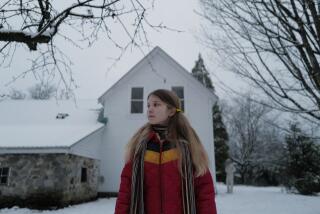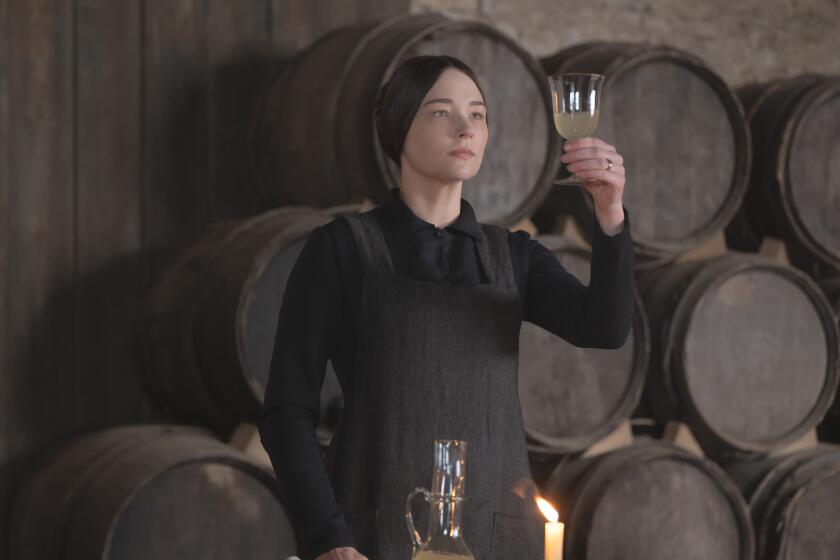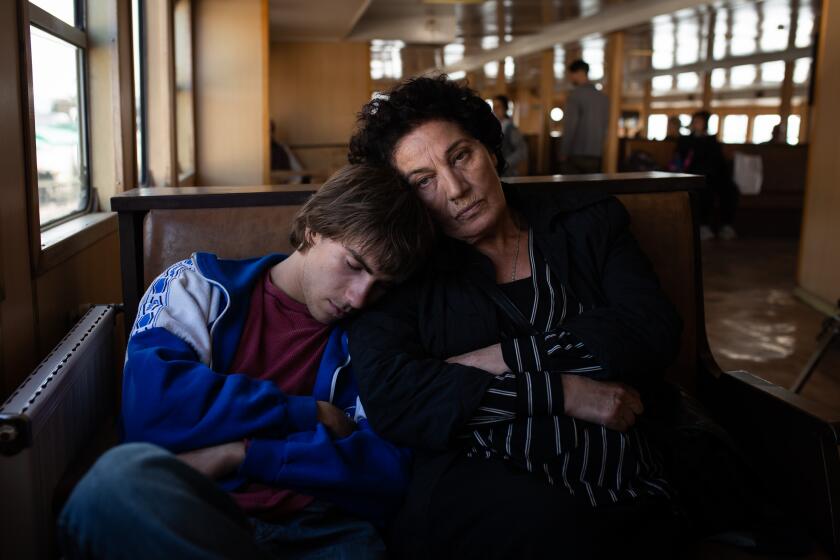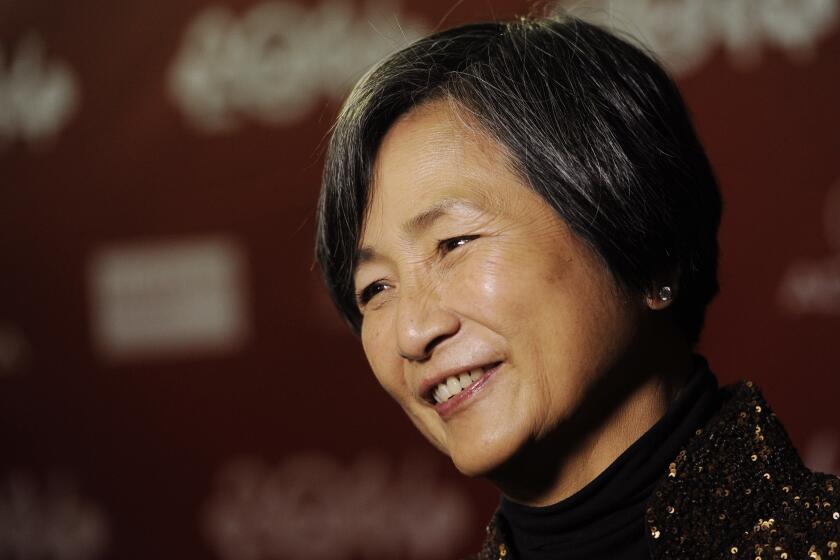Memory and love in the South
The 13th annual Pan African Film & Arts Festival, always a cornucopia of wide-ranging offerings, begins today and runs through Feb. 21. Its Centerpiece film is Jordan Walker-Pearlman’s highly entertaining “Constellation,” an elegant saga of an affluent, interracial Huntsville, Ala., family. It has enough plot lines and characters to launch a soap opera yet never becomes one, and is buoyed by a polished cast.
The family has assembled for the funeral of Carmel Boxer, who decades earlier had fallen in love with a young white soldier, Bear Korngold (portrayed by David Clennon), stationed at the city’s military camp. He lacks the courage to cross the color line, with unending regret for both of them, but Korngold returns for Carmel’s funeral.
Carmel’s brother Helms (Billy Dee Williams), an acclaimed painter now living in Paris, comes back to settle his sister’s estate but refuses to attend the funeral. Helms, a ladies’ man, is clearly bitter over the segregated South of his youth, and his sister’s broken heart.
Also attending are Helms’ beautiful ex-wives (Lesley Ann Warren, Rae Dawn Chong) and his two stunning daughters (Melissa De Sousa, Zoe Saldana).
Walker-Pearlman is adept at revealing the effect these people and others have on each other, especially on Helms, played with depth and restraint by Williams.
Edward Landler and Brad Byer’s “I Build the Tower” is an illuminating and comprehensive documentary about Simon Rodia (1879-1965), the Italian immigrant artisan who created the Watts Towers over 31 years in his South-Central yard.
The rich and whimsical towers, their steel spirals covered with shards of tile and glass embedded in cement, are now widely regarded as an outsider art masterpiece -- and also a superb feat of intuitive structural engineering. (One of the towers was put to a 10,000-pound stress test in 1959 to prove to the city’s building department the landmark was not liable to collapse.)
Landler and Byer, who is Rodia’s great-nephew, suggest the influence of Neapolitan architecture and religious processional artifacts on Rodia, who late in life received acclaim and agreed to interviews. He was a slight but sinewy man, outspoken and impassioned. By his own admission, he was a bad husband and parent and a heavy drinker who built the towers as a form of penance after giving up alcohol in 1919. After what Rodia called a stroke, he left the Watts Towers in 1954 to spend his final years near his late sister’s family in Martinez, Calif.
Landler and Byer not only make extensive use of archival material but they also enrich it with images from many sources, including silent movies. They evoke the Italian immigrant experience so crucial in shaping Rodia’s artistic vision and its unique expression in his wondrous towers.
Guerrilla filmmaker Jamaa Fanaka, best known for his explosive “Penitentiary” trilogy of the ‘80s and the epic “Street Wars,” has reworked his 1976 “Emma Mae,” which he calls “the first authentic hip-hop movie.” It may well be, and not surprisingly, it holds up just fine, for Fanaka is a timelessly dynamic, passionately radical filmmaker.
“Emma Mae, da Remix” stars irrepressible Jerri Hayes in the title role as a Mississippi country girl, who after the death of her mother comes to live in Watts’ Nickerson Gardens with her aunt’s family. In her naivete, Emma falls for no-good gangsta Jesse (Ernest Williams II) and doesn’t hesitate to stand by him -- and then some. But Emma proves resilient in physical strength, character and wisdom. Awash with ‘70s afros and bell-bottoms, “Emma Mae” has lost none of its immediacy or relevance -- or its potent mix of grit and humor.
Iranian cinema
Mani Haghighi’s “Abadan,” being shown as part of the UCLA Film Archive’s 15th annual Celebration of Iranian Cinema, is something of a surprise, looser and earthier than most Iranian films. (So uninhibited is its language that the 2003 film was banned in Iran.)
It’s a wry, rueful comedy in which a group of people’s yearnings and problems send them off in unexpected directions resulting in three sets of amusing, insightful encounters between two individuals.
Marjan (Fatemeh Motamed Arya) begs her reluctant estranged husband Aman (Ehsan Amani) to find her senile father, Amir (Dariush Asadzadeh), who has wandered off. Aman at last agrees, taking his easily depressed pal Atta (Shahrokh Foroutanian) along for the ride.
Amir joins another elderly man, Najmi (Jamsheed Mashayekhi), for an adventure. In the meantime, Marjan unexpectedly runs into Arezoo (Hedeyeh Tehrani), her husband’s mistress.
Haghighi’s shoot-from-the-hip style matches his characters’ careening emotional states.
*
Screenings
Pan African Film & Arts Festival
* “Constellation”: 7 p.m. Wednesday
* “I Build the Tower”: 4:20 p.m. Sunday
* “Emma Mae, da Remix”:
8:55 p.m. Wednesday
Where: Magic Johnson Theatres, 4020 Marlton Ave., L.A.
Contact: (213) 896-8221; www.paff.org
UCLA Film Archive’s Celebration of Iranian Cinema
“Abadan”: 7 p.m. Sunday
Where: James Bridges Theatre, Melnitz Hall, UCLA
Contact: (310) 206-FILM; www.cinema.ucla.edu
More to Read
Only good movies
Get the Indie Focus newsletter, Mark Olsen's weekly guide to the world of cinema.
You may occasionally receive promotional content from the Los Angeles Times.






